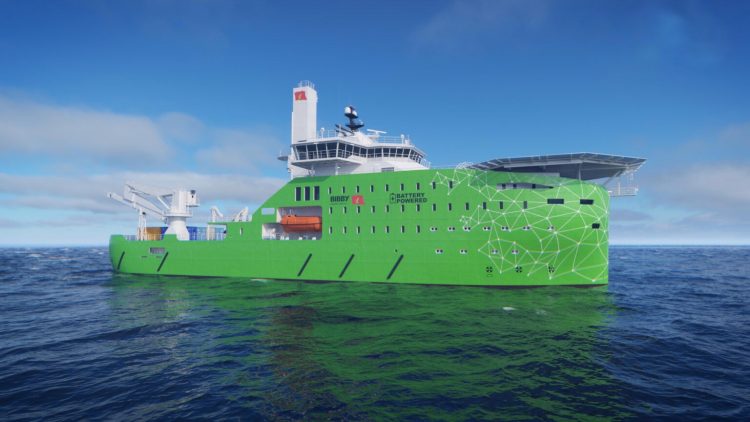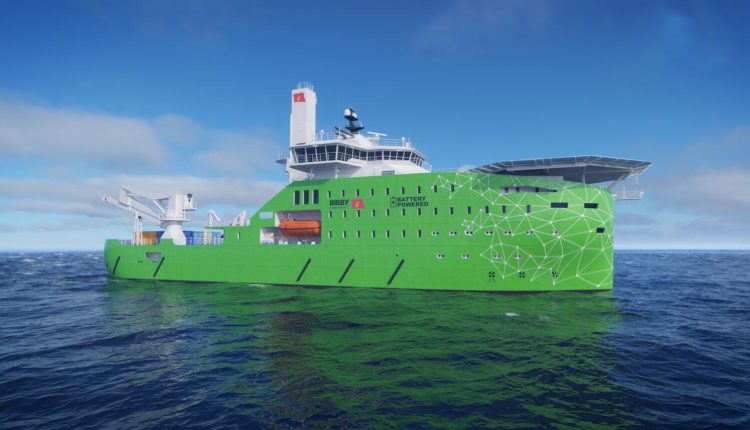Bibby Marine switches shipyards for net zero vessel
Liverpool firm Bibby Marine appoints Spanish shipyard to build world’s first zero-emission offshore support vessel, costing tens of millions of pounds, after parting ways with original builder. Tony McDonough reports

Bibby Marine says shipyard Armon will build its first net zero offshore support vessel less than a year after awarding the contract to another Spanish firm.
Costing tens of millions of pounds, and backed by the UK Government, the electric commissioning service operation vessel (eCSOV) will feature a battery system complemented by dual-fuel methanol engines.
A division of Bibby Line Group, one of Liverpool’s oldest family firms, Bibby Marine has led a consortium developing its groundbreaking maintenance vessel for several years. In September 2023 it secured £20m from the Government to support the project.
Although it hasn’t revealed the cost of the eCSOV previous estimates have put the figure at between £40m and £50m.
In April 2024 Bibby Marine awarded the contract to build the ship to Gondan Shipbuilders in Spain following a tendering process. It said Gondar’s proposals stood out in terms of timeline, budget and quality.
However, Bibby says it has now amicably parted ways with Gondan and the vessel will instead be built by Armon, which is located in Vigo in Spain. The company has been building vessels since 1963.
Once in operation Bibby says the eCSOV, which will support offshore installations such as windfarms, will have the capability to operate solely on battery power for a typical full day of operations, the range of the vessel will allow for passage from field to port and return.
Saving thousands of tonnes of CO2 over its lifetime the vessel will allow Bibby to slash operation costs. It has been designed collaboration with the UK-based Longitude
Bibby Marine currently operates two offershore support vessels powered by conventional fuel. They are floating powerhouses that provide support for offshore facilities such as wind farms and gas and oil fields.
They carry up to 90 people for weeks at a time and they have huge power needs. Each vessel generates 6-7 MW of power. In a year both vessels will use enough energy to power 800 homes and 18m miles of car journeys. It adds up to 14,000 tonnes of CO2.
Nigel Quinn, chief executive of Bibby Marine, said: “We are excited to launch this vessel, as we understand that its delivery will be a game changer for our industry, speeding up our journey to achieve net zero emissions and leave other operators in our clean wake.
READ MORE: Losses at Liverpool panel firm despite revenue rise
“We are thrilled to be working alongside our new partners Armon and move to the next stage of our project. The delivery of this vessel will bring our clean vision to life, confident it will mean significant advancements to our industry.”
Armon chief executive Laudelino Alperi added: “This project marks a pivotal moment in the journey towards sustainable maritime operations, and we are proud to partner with Bibby Marine in bringing this groundbreaking vessel to life.
“The complexity of the eCSOV underscores its importance, not only as a technological challenge but as a statement of commitment to a cleaner and greener future.”

